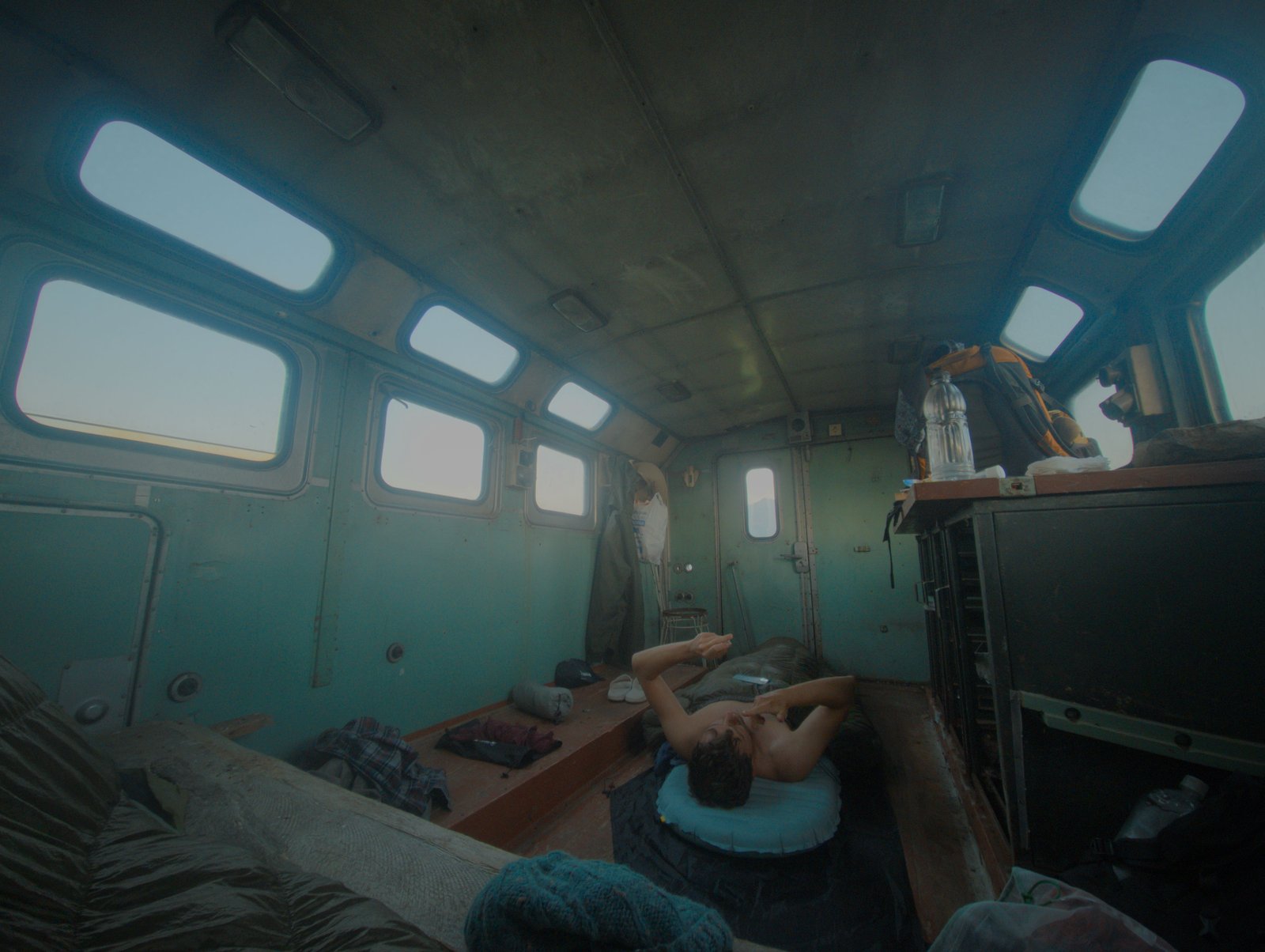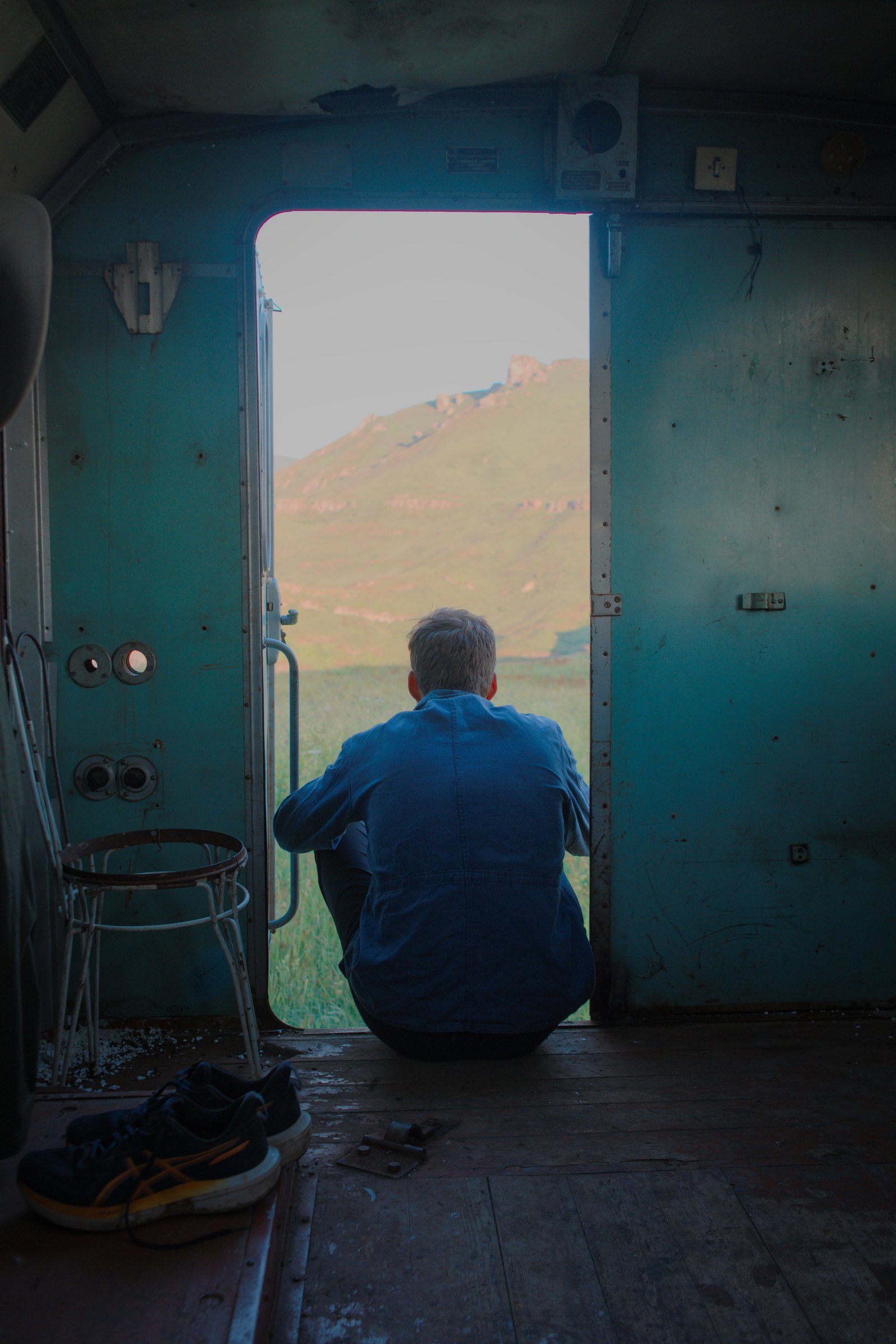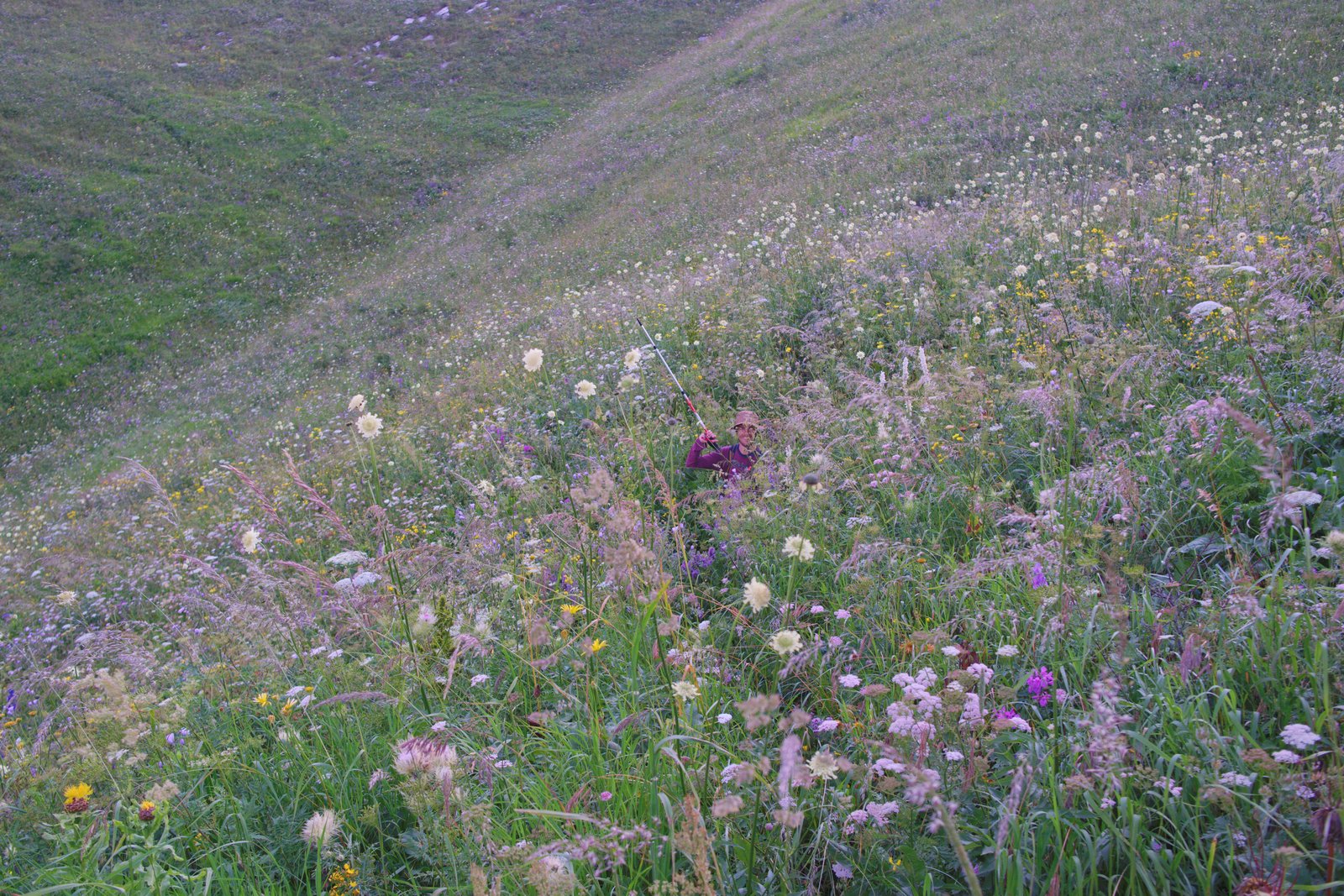The Dilijan Plan

From its perch atop the saddle, the space station offers a grand view across the valley we would be descending through. As the air warms and our breath stops curling in front of our faces, the thought crosses our minds to stay put, but despite the lush environs yesterday’s walk yielded no flowing water sources, the same may yet be true today, and we’ve only a few hundred mils of water between us.

We opt to use the last of the water to brew up a morning coffee, worst case we can wet our tongues on the abundant dew that has descended on the mountain overnight. If all goes to plan, today should only be a half-day anyway, to the town of Dilijan. Once Jonny has wrapped his feet in half a roll of tape and scarfed his ritual multi-vitamin, the promise of a dinner more elaborate than what we can put together in a single pot on a camping stove gets us moving. Setting off, Jonny and I try to work up a rap to remember the things we want to do when we reach town. We abandon the effort after about a verse and half but day four remains The Dilijan Plan in honour of the song.
This is part 4 of The Booky Chronicles, Jonny and I’s nine day walk through the mountains of Armenia in the midst of my walk to the Himalaya.

Worst-case scenario, you step on a blunt-nosed viper going that way, I shit myself, a bear comes and eats our shitty, poisoned remains. We’re both dead.
As we try and make up our minds which side of the valley to descend, Jonny remains committed to the dramatic view on things. In fairness to him, the days walk to Dilijan begins with a long, steep, and slippery descent through grasses taller than Jonny or I, a textbook setting for startling and being bitten by a snake if ever there was one. Ten minutes after setting off we’re wet through with dew. But for the fact that it is steeply down hill, moving through the high grass feels as much like swimming as hiking. After stumbling more than a few times in spite of his poles, Jonny sends me ahead to tread down a path.

Six hours after putting our shoes on in the mountains we’re gleefully kicking them off in a guesthouse in Dilijan. I sling our clothes in the laundry, Jonny takes a nap, and later we sniff out a restaurant for a well earned feast and chat. At a corner table in the first restaurant we found, we order food enough for four and tip back fizzy drinks until it appears.
Leaning into some of the threads we began up in the mountains we touch on how the dream has changed and grown in recent years as I have shared more of it; the often unrecognised difference between managing and leading; how, given total control, I would find myself in a hell of my own making, a prison of the mind, yet the difficulty of relinquishing that control; and about the beginnings of a plan to get into Russia; and about patterns of male shame and insecurity, at scales personal and societal. But the main thread of the evening becomes apparent as we spend nearly five hours talking about the calamity of having parents, and the journey toward understanding them. I tell him that, strange as it might seem, this walk is in part an attempt to connect with my father, and I realise I’m not sure if I’ve ever really told anyone that? I haven’t been concealing it exactly, I guess I just haven’t known many people who I can have that conversation with without it slipping into platitudinous waste. My relationship with mum is marked or marred by our (my?) saying too much, things that shouldn’t be said, but with dad (dads?) it’s the opposite, we live mute under the weight of things that shouldn’t have happened but about which we cannot speak.
These things are not kept secret from the people I love, and who love me, but when I do talk about them I often feel that those conversations are for them that they might know me better, but are rarely useful for me, that I might know myself better. We are equipped for life first by experience and then by empathy, beyond that we try to fill in the gaps with education. By his own experience, his abundance of empathy (and his ongoing psychology degree), and within the vivid crucible of this walk together, with Jonny those same conversation have risen to that hallowed plane of dialogue where there is no need to translate between two worlds, where nothing is diminished in the telling, and so to a place where things are said, heard, and understood in a way that is simultaneously effortful and effortless, such that our growing understanding of the other expands our understanding of self equally.
I think often about the sisterhood of women, how, for the women who find it, that wellspring of understanding, of shared experience, and community can be a (literally) super-human resource for living, and for coping with the world as it is1. For much of my life I had no grasp that their could exist a brotherhood of men beyond that spirit numbing, social fabric shredding maelstrom of male bravado and misogyny that seemed to ooze out of everything, and so I mostly swore off men. But people like Jonny (and Paul, Dale, Cy, and Kyle) remind me that there can be brotherhood among men that stirs and ignites the spirit toward better, more honest and open-hearted living. This sensation will be what sticks in my memory after Jonny has returned to London, and I to the lone wander.
Weeks after he’d returned to London I asked Jonny if he could remember the Dilijan rap and he kindly sent back this little recording (I’m sure he doesn’t mind my sharing it with all of you…). Not included: the fragments of a shopping list that were the initial impetus for the song.
-
I know this isn’t every woman’s experience by any stretch. Some women never find it, or find themselves shut out of it, or are met by a cruel incarnation of it. I’m not trying to paint some rosy picture of universal feminine solidarity, but it is useful to me to acknowledge something I’ve long witnessed, envied, and regularly draw inspiration from.↩︎